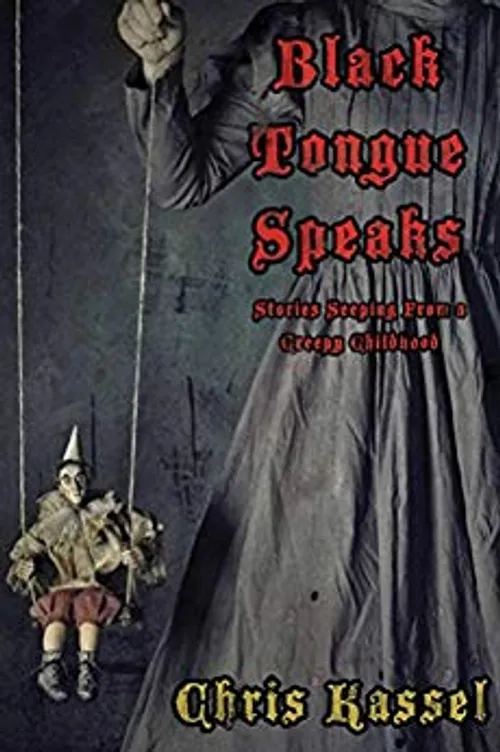LACUNA
Pricilla turned down the babysit job because she had a test in English in the morning. Literary terms. Besides, it was the first time Ms. Parikh had asked her to sit and the baby was only five months old; the youngest children Pricilla watched were toddlers, and most—like Mrs. Platt’s son Isaac—were in elementary school. Between Googling words like ‘anastrophe’ and ‘bibliomancy’ for the test, Pricilla didn’t need the extra stress of having to look up behavioral patterns of a five-month-old.
But Mrs. Parikh was persistent. To make it worse, she admitted that this would be her first time leaving the baby with any sitter. Tonight was an emergency, she groaned; a co-worker was ill and she had to take the reins at her company’s headquarters during a video conference with Japan.
“The time difference between here and Tokyo, that’s why the call is so late. This all came up last minute and Krish—that’s my husband—is out of town on business.”
The baby’s name was Dhruv, she added; she did this to personalize him. Pricilla had to snicker because she’d read that personalizing yourself is what you should do if you are kidnapped: Try to make yourself into a person so your kidnapper doesn’t murder you. On Pricilla it had the opposite effect. My God, she thought: Dhruv, Krish, Parikh? These people had Orc names, like they were from Mordor instead of India.
“Three, maybe four hours. I’m desperate,” Mrs. Parikh went on. “Inger Platt said you were the most reliable sitter she has—she even hesitated to pass along your name; families are possessive about sitters they can trust…”
Now Mrs. Parikh was trying to flatter her. Pricilla was not impressed. She knew she was not a particularly good babysitter—in general, children in annoyed her and many of them (the new ones especially) were afraid of the way she looked. Of course she was reliable; fifteen-year-old girls with normal faces had fun things to do on Friday and Saturday evenings.
“I’ll pay more than your regular rate,” Mrs. Parikh insisted. “I’ll pay you fifteen an hour. And for a full four hours, even if I’m back after three, which there is a good chance I will be.”
“No thank you,” answered Pricilla.
“Oh, wow, that does put me in a bind then,” answered Mrs. Parikh. “I had so hoped you’d be available. What about a friend? Can you think of someone who might want to earn sixty dollars for three hours work?”
A joke, right? Although it was not like she was friendless—there was Alice Collins and Juanita Havens from her Any Child Can support group, but they had a more severe form of HFM and were even scarier looking than she was. Alice had freakishly wide-set eyes and flounder lips; she looked like a porpoise in designer frames. Juanita had Goldenhar syndrome; she was a total Elephant Man gimp with no ears and fleshy, slug-like growths under her eyes. Pricilla’s face was asymmetrical, that’s all. A mild case of HFM—she looked a bit like a cartoon image where someone gets slugged in the jaw and it gets pushed away from the rest of the face. In her case, and unlike in cartoons, the jaw never settled back to where it should be. She was an odd sight, especially with her anemic, wax-white skin, but a five-month-old probably wouldn’t notice. The older children she watched seemed perpetually terrified, which meant that they minded her and went to bed when she told them to. As for the kids in her school, it was a good thing that she surpassed them all scholastically—it went a way toward muffling their laughter and snide comments and the pictures of King Kong they stuffed through the grate holes in her locker after writing ‘Pricilla the Gorilla’ on the outside.
Scholastic excellence: At the end of the day, it was all she had over them, and it was why acing the vocab test was so important.
“Know of any friends who might take the job?” Mrs. Parikh repeated.
“I don’t, sorry,” Pricilla answered, but she sounded terse rather than apologetic.
“Would it be possible to speak to one of your parents?” Mrs. Parikh asked.
“There’s just my mom, and she’s working.”
“Ah, that’s right. Luxor Nail and Spa—I’ve been there. She’s very good at what she does.”
Shaving callouses off the feet of rich women? Good Lord, what a thing to be good at. “I have to get back to my homework,” Pricilla said.
Fifteen minutes later, her mother called and told her to take the job: “You don’t have the luxury of turning it down, Cill. It’s sixty bucks we need. Know what’s due this week? Your cable bill.”
“You use cable too. Plus, I have a ton of homework.”
“Then you can do it at the Parikh’s kitchen table—a nicer one than ours, no doubt. She says she’ll feed the baby before you get there and that he’ll probably sleep the whole time anyway. You’re accepting the job, hon.”
Pricilla sighed audibly and cursed less audibly, then looked up ‘five-month-olds’ on the internet.
The Parikhs lived in a different part of the complex. The walk was not long, but in the melancholy chill and premature darkness of mid-November, it seemed longer. Pricilla was relieved that the sleet held off until she was ringing the Parikh’s buzzer—frying the laptop in her backpack would have iced the miserable cake.
When Mrs. Parikh opened the door, little Dhruv was suckling her right breast. She looked ineffably relieved that Pricilla had actually shown up. She beamed, displaying the white teeth that wealthy Indian women often have, and issued Pricilla into a spread of sleek, pricy, modern furniture.
Pricilla noticed two things immediately: First the smell—a bizarre blend of spices you associate with those strip-mall all-you-can-eat buffets where you’re afraid to eat anything, let alone everything; absently, she wondered how awful Indian shit smelled. Second, she noticed that Mrs. Parikh’s exposed right breast was truly monumental in girth and contour. Pricilla had seen her around the complex, and recognized that she was a beautiful woman with exquisite, delicately fashioned features—a look that complimented her South Asian coloring, which Pricilla envied. It seemed grotesquely unfair that she’d also been graced with magnificent breasts. Pricilla’s own paraffin-pale nubbins were smaller than her fists—her mother called her a late bloomer and assured her that she’d been a late bloomer too. Well, maybe she was, and after all, Mrs. Parikh’s breasts were engorged with milk, and that probably accounted for half their size. By next summer they’d start to sag, and if she had any more Orc babies, it was game over for those boobs.
Mrs. Parikh sat on a lush leather sofa that shone like the skin of a wet seal. “I can’t thank you enough for your change of heart, Pricilla. I’ll finish the feeding the little fellow and he’ll be good until I get home. There’s an emergency bottle in the refrigerator just in case, but I doubt you’ll need it. At this time of day, his schedule is pretty predictable. I’m very lucky, I know—Dhruv is good P.R. for motherhood! After I burp him and change him, he’ll sit in his vibrating bouncy chair and coo for a bit until he falls asleep, then you can transfer him into his crib. He sleeps like a… well, like a baby!”
“Do you mind if I do my homework?
“Oh, not at all—am I chattering too much? Set up wherever you’re comfortable; the Wi-Fi pass is S-U-K-H-A, Bangla for ‘happiness’. Dhruv won’t be a lick of trouble; he’ll be asleep five minutes after I leave. It will be just like doing homework at home!”
Only at a nicer dining room table. That was one of the next two things that Pricilla noticed: First, her mother had been correct—unlike the dumpy Formica castaway they used, the Parikh’s dinner table was made of lacquered walnut. Second, when she glanced up from her laptop, she saw that the baby had detached itself from a Dr Pepper-colored nipple and was looking at her.
Pricilla was used to rubberneckers, and it was usually best to ignore them, but this was a different expression altogether: The baby’s eyes were wide as Frisbees and seemed neither hostile nor incredulous, but instead, paralytic.
“Why is he staring at me?” Pricilla frowned.
Mrs. Parikh was immediately embarrassed. Did Pricilla think he was gawking at her deformed face? “Oh, it’s not at you—babies this young can’t see more than twelve inches in front of them; that’s the distance between their eyes and the mother’s eyes when they’re nursing.”
“Not true,” Pricilla sniffed. “I Googled five-month-olds. They can already say ma-ma and da-da, and sit up by themselves and laugh and stuff. And they can see much farther than twelve inches.”
“Oh, well, maybe a little bit farther, but not across an entire room. He’s not sitting up yet, although he does roll over sometimes. But he’s never once laughed! He’s a serious little man, I suppose! A late bloomer, perhaps! I know I was! And anyway, look—now he’s shut his eyes and is back to nursing.”
Pricilla shook her head and returned to her vocabulary words. She was only on ‘L’. The next word on the list was ‘lacuna’, which sounded like a body of water or an island in the Pacific or a city in Italy and nothing like what it wound up being: ‘a gap or blank space in time; a missing part of a story.’
She recognized that ‘lacuna’ might be a mental block issue for her and tried to come up with a mnemonic device by which to remember it. ‘Mnemonic’ was not listed until the ‘M’s, of course, but she used mnemonics frequently to help her ace tests and that was one word she wouldn’t have to look up.
Mrs. Parikh returned her beautiful breast to its holster, changed Dhruv’s diaper, then set him in his MamaRoo infant swing and switched it on it. “I’ll leave you two to it, then,” she smiled, pulling on a champagne-gold Moncler raincoat. “The emergency contacts are on the counter along with my cell and office numbers, but you won’t need them. See, he’s already looking sleepy in his bouncy seat. Soon as he nods off, all you’ll need to do is carry him to his crib and lay him down on his tummy. He’s full, so he’s probably good for the next six hours or more. I doubt he’ll make a peep!”
Pricilla glanced up from her homework. “Well, the experts agree with you there. Kid his age should be sleeping through the night.”
“Speaking of night… Nighty night!” cried Mrs. Parikh, and was gone into the wind and sleet.
As soon as the door was shut, little Dhruv opened his eyes again and again fixed her in a peculiar, deadpan stare. His little head trembled with the vibrations of the seat and every one of his pores seemed alert.
“What the fuck are you looking at?” she said.
Dhruv blinked and opened his eyes wider. They were velvety black like the sofa and oversized like an Anime baby’s.
Pricilla harrumphed: “It’s called HFM, you little piece of shit—hemifacial microsomia. I can’t help the way I was born. What’s your excuse? You’re not exactly Gerber baby yourself. You look like Bollywood Gollum. So stop staring at me. It’s rude.”
The baby had no idea what she was talking about. So she adjusted the position of her chair so that it was out of the direct line of his vison and made a serious attempt to finish her homework. But it was like trying to ignore a spider on the wall behind you—the harder you try, the more jittery you get wondering what that dreadful bug is up to. So she looked again; Dhruv’s eyes had closed. She was about to exhale in relief when they opened again and caught her in the same meaningless glare.
“Somebody should teach you some manners, Curry Breath. Go the fuck to sleep already.”
Mentally, she saw how quickly this could get out of hand. She steeled herself against her rising anger and made a concerted effort to work on her vocabulary words, resisting every impulse to turn around. And shortly, suddenly, she thought of the perfect memory device with which she could recall the definition of ‘lacuna’:
According to Merriam Webster, a lacuna was gap, right? She imagined the word with a small gap in it—‘la cuna’. That was ingenious! And to make it even better, she Googled la cuna and learned that it was Spanish for ‘the crib.'
In fact, it was time for the crib. When Pricilla finally allowed herself to glance over her shoulder again, she found Dhruv with his eyes closed and breathing rhythmically. She tiptoed over, holding own breath. Dhruv’s eyes did not re-open; he was sleeping soundly.
Pricilla knew from experience that this was a critical time for sleeping children. She’d had toddlers nod off in front of the television, while sitting in their high chairs or when sprawled senselessly on the cold tiles in the kitchen. She’d hoist them up and dump them into their beds, and more times than not, they’d suddenly wake up and begin to cry. There was always a nerve-wracking interval between the silence and the onset of sobbing—thirty or forty seconds. A small gap in time—a lacuna.
Still, Mrs. Parikh has given her every reason to expect that with owlish little Dhruv, this wouldn’t be the case. Once down, she’d promised, he was down for the count. Pricilla lifted him from his swing and carried him deftly, delicately into his nursery.
The room was painted a garish shade of yellow, lit by a nightlight in the shape of a cartoon character than looked like a cross between an armadillo and a parakeet. The light switch itself was another character that looked like a garden slug morphing into a penguin. If this is what passed for kiddie entertainment in India, Pricilla speculated, it was no wonder the children are creepshow. The crib was against the wall, and she lay Dhruv on his belly within it. He burbled and sniffled, but did not wake up.
She tiptoed gingerly to the door and nudged it closed, then stood perfectly still and waited through the lacuna. At this point, any noise could be the wake-up trigger: The refrigerator dislodging a load of ice; the furnace clicking on; the chime of a wall clock; petulant November driving wet snow against the glass of the door-wall behind the curtain. All these things happened within a space of ten seconds. The baby did not make a sound.
When she determined she was in the clear, she congratulated herself and returned to her literary terms. She breezed by ‘mnemonic’, Googled ‘nemesis’, ‘onomatopoeia’ and ‘oxymoron’ and quickly came up with sentences that incorporated each of them, one by one. Scholastic superiority could be fun.
In retrospect, she conceded, her mother had been right. She’d never admit it to her face, of course, but this job had turned into a breeze. Once you got used to the persistent stink, the Parikh’s condo was far more inviting and comfortable than her own with its ‘economic’ chilliness and frugal Salvation Army décor. And the money—half again as much as the Platt’s paid her—was icing on a cake growing more palatable by the minute.
Then the sound started up. At first it was light as a snowflake and Pricilla thought a television had been left on somewhere in the house. But it persisted and grew louder. It wasn’t crying—it was laughing.
It was coming from the nursery—a thin, high-pitched tinkle like breaking glass, unlike any sound she’d ever heard a child emit. But, she reasoned, she’d never heard a baby laugh before. Maybe they were just trying those muscles out, experimenting with giggles—maybe they didn’t need something to be particularly funny before they laughed. The noise was pretty disturbing, though: A hyena hiccup, a staccato crackle of electricity, but unmistakably, the sound of embryonic laughter. It hung in the air for a long time, then paused, as if Dhruv was recharging the batteries. Then, it began again.
Pricilla wondered what she should do. If he was crying, she might have picked him up and rocked him gently back to sleep, but according to BabyMed.com, laughing was part of the standard five-month-old repertoire, even if this was, in Dhruv’s case, merely its opening salvo. The site offered suggestions for tantrums, for wistfulness, for gassiness, for diarrhea, but laughter was not a contingency that appeared to need a remedy.
It was rather scary, she thought, especially in this context—there was nothing to laugh at. After a while, it became quite difficult to listen to. And shortly, impossible. She plugged her ears and counted to sixty; when she removed her fingers, the sound was louder and more hysterical than before. She was reminded (again) of the spider on the wall. After a while—if it bugged you that much—you simply resorted to Raid.
She crept to the nursery and peeked inside. The paint color suffused the room in a yellowish aura. In one corner, shadows pooled beneath a giant plush toy that looked like a cross between Bigfoot and a sea anemone.
Pricilla could not see the baby from the doorway—there was a puffy swaddling blanket draped over the side of the crib. She entered on her toes, peered into the crib, and there lay Dhruv, mouth open, sucking in a lungful of air, then emitting it as a torrent of screechy chuckles. He’d rolled himself onto his back and was vibrating as if still suspended in the MamaRoo. He was staring upward, directly at the ceiling, but there was nothing on the ceiling. Something beyond his range of vision was eliciting shuddering belly-laughs from the tiny frame, although nothing in his hollow, bug-eyed stare indicated that he found it the least bit amusing.
Pricilla was disturbed beyond reason—she felt like screaming. Time for the Raid: “Stop laughing,” she barked as loudly as she could, certain that, at the very least, it would scare the shit out of him: Crying was something she thought she could deal with.
He didn’t cry, but briefly, he stopped laughing. He jinked his head in her direction and suspended her beneath the same empty gaze as he’d done earlier, reminding her of photographs she’d seen of starving children in Auschwitz or the Sudan or one of those war countries in the Middle East. But this was idiotic—he wasn’t starving; he’d just eaten and he was a fat little fuck anyway—overfed, if anything. Besides, famine victims were not so mentally deranged that they snickered over their predicament.
The jingle of laughter kicked in again before she’d slammed the door of the jaundiced nursery, and by the time she found Mrs. Parikh’s cell number on the counter, the baby’s chortling sounded hysterical.
Mrs. Parikh? she typed.
There was a pause—a lacuna—then: Yes, Pricilla? Nothing wrong, I hope.
He won’t stop laughing.
Oh, gosh! Just like you said! I’m so jealous that I didn’t hear it first!
But he won’t stop.
That’s just marvelous! I knew you’d bring out the best in him. Got to run now, though. Thanks for the update!
He’s hysterical.
I’m sure he is! Can’t wait to see for myself! Make sure to take a video of it! Now, I apologize, but I am in the middle of a conference.
What should I do?
Laugh along with him, silly willy! I know I am, just thinking about it! Right in the middle of a video conference, too! How unprofessional of me, huh?!
I really want him to stop.
Trying turning his MamaRoo all the way up to ten. He is probably exhausted and that always puts him right to sleep. See you in a bit!
A bit? Pricilla wasn’t sure the sort of bit she was willing tolerate before getting hysterical herself. This was clearly a problem that Mommy Orc expected her to solve on her own. Well, there was Google. She looked up ‘inappropriate laughing’ and found a Wiki entry:
Paradoxical laughter is an exaggerated expression of humor which is unwarranted by external events. It is associated with mental illness such as mania, hypomania or schizophrenia, but can occasionally have physical causes as well.
Oh, won’t that teach her mother to force babysitting down her throat. No wonder Mrs. Parikh couldn’t find a sitter. The little monster had some fucking disease. For Pricilla, this job would be a one-night stand, for sure, no matter what —Pricilla wouldn’t stay in the same house with a diseased child for a hundred dollars an hour.
She noticed that on the wall, just above the wall clock, there really was a fat spider. What were the chances of that? She went to look for the Raid.
It was called ‘paradoxical laughter’ and ten minutes later, Pricilla considered the irony—a literary term she’d already memorized since it was listed under the letter ‘I’—that ‘paradoxical’ would be listed under the ‘P’s. But there it was. She composed a sentence: If a baby laughs at something that is not funny, and the baby’s mother finds it funny, it is paradoxical because if it is funny, the baby SHOULD be laughing.
After that, the baby’s laughter was no longer was an issue.
When Mrs. Parikh returned, she found Pricilla hunched diligently over her laptop working on Geometry homework. She’d finished her English, having sailed through the last few letters; ‘T’ for ‘tragedy’ and ‘U’ for ‘understatement’. The baby was outside on the patio in his MamaRoo Infant Swing in the final stage of hyperthermia.
Naturally, Pricilla never got a chance to ace her vocab test. When the police officer who placed her in the back of the squad asked her what in the world she’d been thinking, there was a short gap in time, a blank space, a missing piece of the story, and then she burst into giggles—even though she didn’t find the situation the least bit funny.












This story has not been rated yet. Login to review this story.